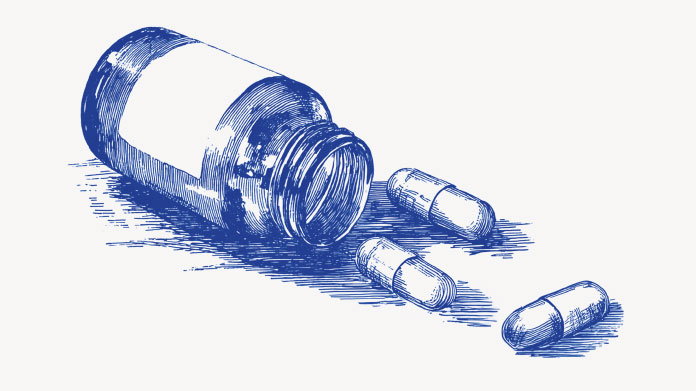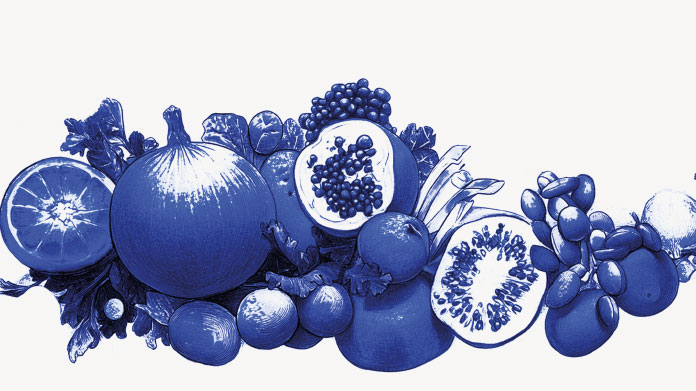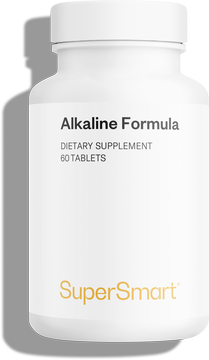
Contrary to popular belief, painful joints can occur at any age, and can have a dramatic impact on everyday life. If your joints are giving you grief, then it’s time to take a few simple steps to relieve the pain.
Boost your natural defences with SAMe
SAMe (S-adenosyl-methionine) is an amino acid naturally present in all the body’s cells. It’s found in protein-rich foods such as meat and fish. Researchers have shown that SAMe can be very effective at reducing joint pain and stiffness (1).
In practice: a daily dose of 1200mg is recommended for obtaining the benefits of SAMe (that’s 3 capsules a day of SAM-e 400mg). It often comes in enteric-coated capsules for controlled release in the gut and less risk of nausea.
Take action for the long-term with collagen hydrolysate
Collagen is a protein essential for normal function: it ensures elasticity and cohesion of the body’s tissues. A six-month course of supplementation with a particular type of collagen (hydrolysate) provides significant reductions in joint pain and stiffness (2). A study also showed that taking collagen protected knee cartilage in arthritic patients (3). Collagen thus offers long-term benefits, with very few known side-effects.
In practice: a daily dose of 10-12 grams of collagen hydrolysate (preferablytype 2) should provide beneficial effects for painful joints.
Target pain with MSM
MSM (methylsulfonylmethane) is an organosulfur compound present in small amounts in foods such as eggs, milk and cabbage. It maintains the body’s immune function and protects tissues such as cartilage and tendons. These properties make it highly effective at reducing joint pain, especially in the knees, and improving range of motion (4).
In practice: around 6-8 grams of MSM is the recommended daily dose.
Protect cartilage with ginger
In addition to its recognised antioxidant and anti-inflammatory benefits, Zingiber Officinalis has demonstrated protective effects for cartilage, as well as modest reductions in joint pain and its adverse effects on daily life (5).
In practice: Extracts of ginger standardised in gingerols are most effective at providing benefits.
Reduce inflammation with cinnamon
We all know the value of cinnamon for adding flavour to apple-based desserts, but we often forget about its powerful anti-inflammatory properties which help reduce swelling in joints and relieve the accompanying pain (6).
In practice: 2 grams of cinnamon powder a day will provide significant anti-inflammatory benefits for the joints.
Improve physical ability with boswellia
Boswellia Serrata resin is traditionally used in Indo-Chinese pharmacopoeias for treating painful joints and rheumatism in general. Boswellia’s efficacy comes from the anti-inflammatory properties of its boswellic acids. Scientists have demonstrated the pain-relief benefits of Boswellia resin and its acids in people with arthritis of the knee, as well as improved athletic performance in these same individuals (7).
In practice: for boswellia supplementation to be effective, it needs to have a significant amount of boswellic acid (notably AKBA, a particularly active acid), as is the case with our supplement Super Boswellia. In addition, boswellia supplements are best absorbed when taken with a lipid-rich meal.
Take advantage of the adaptogenic benefits of ashwagandha
Withania Somnifera is a plant known for its adaptogenic properties: it helps the body adapt to all types of stress and respond accordingly. Ashwagandha and its valuable withanolides help reduce joint pain and inflammation, and protect cartilage. Its active principles are particularly well-tolerated by the body (8).
In practice: a dose of between 300 and 600 grams of ashwagandha extract should improve joint health. It’s best to choose extracts that contain at least 1.5% withanolides (or 6 milligrams of withanolides a day).
Take maritime pine bark for its anti-inflammatory properties
Maritime pine bark contains flavonoids with powerful antioxidant and anti-inflammatory effects which reduce joint pain and stiffness and boost physical ability. Supplementing with pine bark extract could enable individuals suffering from arthritic pain to take lower dose and less frequent anti-inflammatory medication (9).
In practice: the recommended daily amount is 150 grams of pine bark extract, divided into three doses.
Relieve joint pain by eating a balanced diet
Excess weight is a key factor in arthralgia as it places too much mechanical pressure on the joints. It also causes excessive inflammation in the body which damages cartilage. If you are overweight or obese, adopting a healthy, balanced diet can help you lose weight and ease the pressure on your joints.
In practice: a balanced diet is founded on simple principles such as eating everything in moderation, to satisfy your hunger and no more. For those suffering from arthritis, fibre-rich foods are particularly recommended: fruit, vegetables and pulses.
Boost your joint health with regular physical activity
Toning the muscles that support your joints helps to give them extra protection and prevent arthritis. For those who already have arthritis, remaining physically active can reduce joint immobility and aid health-beneficial weight loss.
In practice: engage in low-impact, endurance exercise to benefit fully from the positive effects of physical activity. Take care, as exercising too intensively can also weaken the joints.
A healthy lifestyle is essential for maintaining good joint health. If you suffer from painful joints, there are simple measures you can take to help you cope. However, if your symptoms persist, be sure to consult your GP. If you’d like to take a broad-spectrum supplement containing several of the ingredients mentioned in this article, we wholeheartedly recommend our Joint Pack.
References
- Bruyère O, Zegels B, Leonori L, Rabenda V, Janssen A, Bourges C, Reginster JY : Effect of collagen hydrolysate in articular pain: a 6-month randomized, double-blind, placebo controlled study. Complement Ther Med. 2012, Vol. 20(3), pp 124-30.
- McAlindon TE, Nuite M, Krishnan N, Ruthazer R, Price LL, Burstein D, Griffith J, Flechsenhar K : Change in knee osteoarthritis cartilage detected by delayed gadolinium enhanced magnetic resonance imaging following treatment with collagen hydrolysate: a pilot randomized controlled trial. Osteoarthritis Cartilage. 2011, Vol. 19(4), pp 399-405.
- Kim LS, Axelrod LJ, Howard P, Buratovich N, Waters RF : Efficacy of methylsulfonylmethane (MSM) in osteoarthritis pain of the knee: a pilot clinical trial. Osteoarthritis Cartilage. 2006, Vol. 14(3), pp 286-94.
- Bartels EM, Folmer VN, Bliddal H, Altman RD, Juhl C, Tarp S, Zhang W, Christensen R : Efficacy and safety of ginger in osteoarthritis patients: a meta-analysis of randomized placebo-controlled trials. Osteoarthritis Cartilage. 2015, Vol. 23(1), pp 13-21.
- Farideh Shishehbor, Mahnaz Rezaeyan Safar, Elham Rajaei & Mohammad Hosein Haghighizadeh : Cinnamon Consumption Improves Clinical Symptoms and Inflammatory Markers in Women With Rheumatoid Arthritis. Journal of the American College of Nutrition. 2018, Vol. 37(8), pp 685-690.
- Majeed M, Majeed S, Narayanan NK, Nagabhushanam K : A pilot, randomized, double-blind, placebo-controlled trial to assess the safety and efficacy of a novel Boswellia serrata extract in the management of osteoarthritis of the knee. Phytother Res. 2019, Vol. 33(5), pp 1457-1468.
- Ramakanth GS, Uday Kumar C, Kishan PV, Usharani P : A randomized, double blind placebo controlled study of efficacy and tolerability of Withaina somnifera extracts in knee joint pain. J Ayurveda Integr Med. 2016, Vol. 7(3), pp 151–157.
- Cisár P, Jány R, Waczulíková I, Sumegová K, Muchová J, Vojtassák J, Duraćková Z, Lisý M, Rohdewald P : Effect of pine bark extract (Pycnogenol) on symptoms of knee osteoarthritis. Phytother Res. 2008, Vol. 22(8), pp 1087-92.
7 Days
Delivery is prompt and I never saw a…
Delivery is prompt and I never saw a quality problem with the manufacturing. It is not possible to assess efficacy on a personal basis, since too many factors come into play. Efficacy can only be assessed statistically with a sufficient number of cases.
Roger De Backer
8 Days
I collaborates with the Supersmart…
I collaborates with the Supersmart more than 10 years. Every thing is going good. Quality of the things is good. Delivery comes in time. Five stars definitely !!!
Oleksiy
8 Days
All good
Simple, frictionless site, easy ordering, good delivery updates and execution.
Chris Robbins
10 Days
I feel better
I feel better
Peter Ammann
11 Days
Prompt delivery
Prompt delivery
JAKUB Radisch
12 Days
My new go-to for top quality supplements!
I am buying more and more of my supplements from this superb, high quality company. Cannot recommend it enough. Plus, excellent customer service with a quick, helpful team and speedy deliveries. Highly recommend Supersmart!
Cecilie H.
16 Days
SUPERSMART WHAT ELSE👍
SUPERSMART WHAT ELSE👍
DIEDERLE Christophe
19 Days
Excellent quality products with…
Excellent quality products with innovative formulas, as someone who has been suffering with acid reflux, these supplements have been lifesavers.
Oriana Moniz
19 Days
high quality supplement!
high quality supplement!
GALANT
19 Days
Good service prompt delivery
Good service prompt delivery
Mrs Marcella Reeves
24 Days
I like your clear explanation
I like your clear explanation. And how to make a choice of products for a specific health problem
Ingrid
30 Days
Great product and it arrives quickly.
Great product and it arrives quickly.
SOMMARIVA Gianni
32 Days
Excellent products and fast service.
Excellent products and fast service. What do we need more?
Margarida
36 Days
The variety of products is amazing
The variety of products is amazing, the offers are good and the sending is very fast. I just miss having a bit more of guidance about combinations, possible interactions, etc.
Maria Angeles Verdu
37 Days
It was quick
It was quick.
Timo Antero





